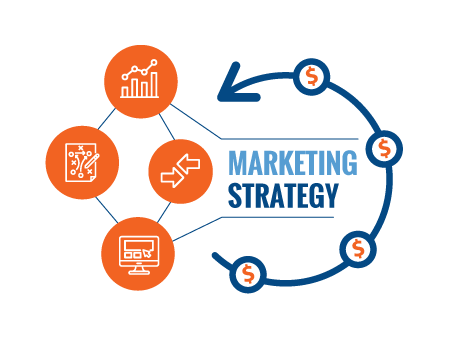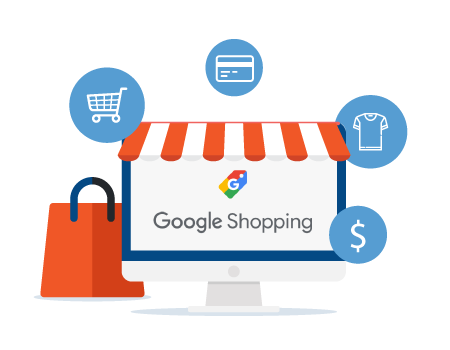eCommerce marketing strategies
eCommerce sites are profoundly visual. eCommerce entrepreneurs must leverage social media platforms to attain attention and traffic to their sites. It is the best process of driving top-of-funnel traffic to convert into sales and consumers. There are various strategies and tactics to make this possible. Some of these are:
Set goals based on industry benchmarks
Depending on your market, location, business capacity, and a multitude of other aspects, there are some standards you can utilize to measure your goals against — those standards are industry benchmarks.

SEO
Enhancing organic searches is always an excellent way for e-stores, as it can drive relevance and popularity up at once.
It is not important if your company is big or small, a bootstrapped startup or a Fortune 500 agency — you need search engine optimization (SEO) to maximize your eCommerce website’s profitability. Thus, ignoring SEO means you’re taking the risk of losing visibility during your consumers’ buying journey.
Established e-commerce companies have prioritized SEO services to optimize their websites for Google and other search engines.

Break down your strategy into small tactics
When building out a marketing strategy for your eCommerce store, there are different ways you could follow. It can be tempting to chase after every single way, but that’s a sure way to not be effective at any of them. We recommend that you focus on several key strategies first that you believe will have the most ROI — and are the easiest for you — and create action items for each.

PPC
This is a great option. You can pay other sites to advertise on their site, and they will get paid each time a user clicks on your link.
PPC for ecommerce works exceptionally because it fits right for ecommerce demands. You can track your advertising campaigns consistently, right down to the last cost.
Plus, the procedure of optimizing an ecommerce store for conversions is quite similar to optimizing a PPC campaign for more clicks, meaning that it usually comes naturally to ecommerce store owners.

Google shopping
Google Shopping can help boost retailers’ sales/revenue. But, to capitalize on the full capacity of Google Shopping, one must thoroughly understand the taxonomy of the product niche. And best Google Shopping campaigns have also their Shopping Feed structure optimized for an excellent performance.

Advanced analytics
Having Google Universal Analytics tracking on eCommerce websites is very popular nowadays. Google Analytics setup, with or without advanced eCommerce provides many tracking facilities. These facilities offer efficiency, simplicity, automation, and data frontiers never saw before.

Social media marketing
Brands, publishers, marketers, and growing businesses all launch pages on today’s most trending social media platforms to connect with their consumers or users and post content that the targeted audience is interested in.
As an eCommerce marketer, you can choose the same way, but the campaigns you run might look a bit different, and not every social platform is a good fit for your requirements.
The choice of a specific social network depends on the particular objectives that the business sets before SMM and on features of the target consumers.

Instagram marketing
In all honesty, Instagram may be an exceptional marketing outlet for your brand or it may be nothing. I wouldn’t say it’s very essential for all online retailers, but when it works, it really works.
Instagram is the best social media site that currently boasts over 500 million members, many of which are Millennials. In 2012, Facebook bought this tech giant for $1 billion dollars.

Facebook marketing
Facebook marketing is very important for any eCommerce business. If your marketing plan does not include Facebook presence and running ads on that platform, you should really redesign it.

Currently, there are more than 319 million users on Twitter, a trending platform for real-time news and conversation. Users can send and receive tweets—140-character messages. Twitter has also started selling directly on the platform with their “Buy Now Buttons.”

Content marketing
When you hear “content marketing,” you might think of blog posts and video marketing to enhance your website’s ranking in search engines and answer queries related to your market. Here are some ways to market your eCommerce store:
- Optimize your product page copy
- Write relevant blog posts
- Create guest posts for external websites

Email marketing
This is the best way to reach out to current users, sending them offers and promotions to keep them in-touch and loyal.
Email can be directly utilized to sell by sending offers to consumers who abandoned shopping carts or haven’t bought in a while. Or they can be utilized in a more indirect way to remind users that you exist and are still relevant with newsletters and helpful suggestions.

What makes Magnostack different?
With MagnoStack, you will be able to resolve any marketing issue you may have. We provide SEO, proper dynamic remarketing implementation, advanced Google Analytics through Google Tag Manager. We use these techniques to optimize your campaigns and increase your revenue.
Why are our results so good?
We are marketing professionals with certified knowledge. But, under our roof, we also have various development talents. If needed, their technical know-how is proving to be irreplaceable.
Also, among all eCommerce platforms, we are highly skilled and specialized. It’s not an exaggeration when we say that we are industry experts.


)
)
)